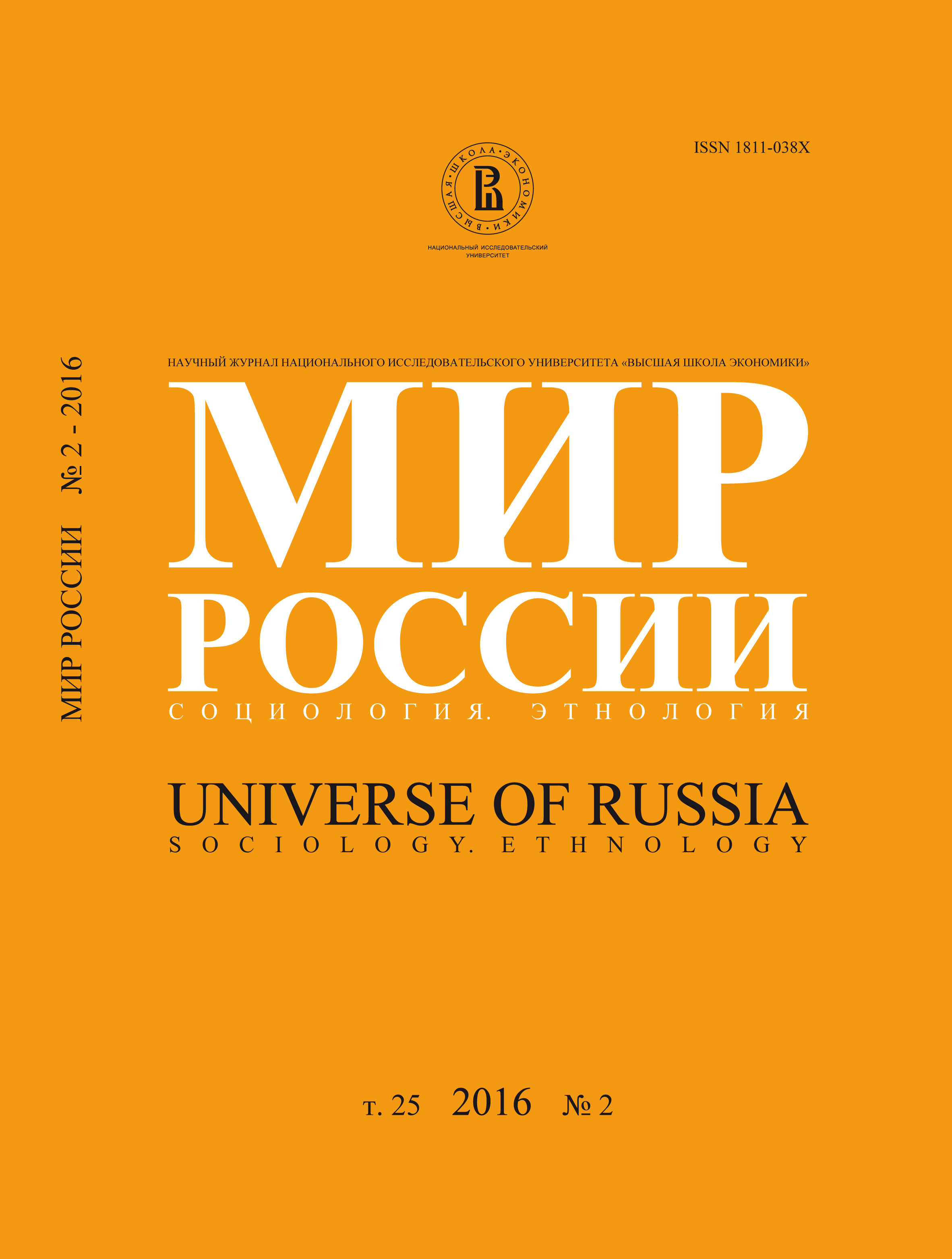Public Perceptions of Poverty and Social Inequality in Russia
Abstract
Svetlana Mareeva — Candidate of Sociological Sciences, Head of Centre for Stratification Research, Institute of Social Policy, Higher School of Economics; Senior Researcher, Centre for Complex Social Studies, Institute of Sociology, Russian Academy of Sciences. Address: 20, Myasnitskaya St., Moscow, 101000, Russia. E-mail: smareeva@hse.ru
Natal’ya Tikhonova — Doctor of Sociological Sciences, Professor-Researcher, Faculty of Economic Sciences, School of Economics; Principal Researcher, Institute of Social Policy, National Research University Higher School of Economics. Address: 20, Myasnitskaya St., Moscow, 101000, Russia. E-mail: ntihonova@hse.ru
This article explores the changes in public perceptions of poverty and inequality in Russia, based on representative surveys conducted by the Institute of Sociology of the Russian Academy of Sciences between 2003 and 2016. The findings reveal that changes in public perceptions of poverty and inequality in Russia largely mirror the actual trends pertaining to these phenomena. Although decreasing poverty, and its changing causes, has made the problem itself of lesser concern to Russians, the diminishing concern about poverty has been replaced by growing concern regarding increasing inequalities.
Russians increasingly stigmatize the poor, which can be explained by the fact that poverty had become mostly a marginal phenomenon by 2014 and that Russians became less prone to perceive poverty as being caused by structural factors. On the other hand, they still recognize that particular circumstances may lead to poverty. As a result their perceptions become more individualized. Therefore, to address the problems of the poor, Russians increasingly demand a more differentiated policy which would alleviate these circumstances. Further, Russians have a clear understanding of the ‘poverty threshold’, i.e. the minimum subsistence income and particular characteristics of poverty such as malnutrition, the lack of money to buy clothes and to satisfy other basic needs without going into debt. This understanding is stable and therefore it has become more relevant to define poverty as relative deprivation.
The findings also reveal that Russians are highly tolerant of the social inequality caused by the factors assumed to be legitimate in the paradigm of equal opportunities. The current level of inequality, however, is perceived as highly excessive and is more often attributed to illegitimate factors. This pushes the demand for redistributive policies.
The article concludes by outlining the more specific contours of a social policy which would correspond to the current structure of preferences. Such a policy implies not so much a monetary means of support, but a further improvement of institutions which enable legitimate ways of individual attainment, a reduction in the factors leading to poverty, and equal opportunities for everyone.






